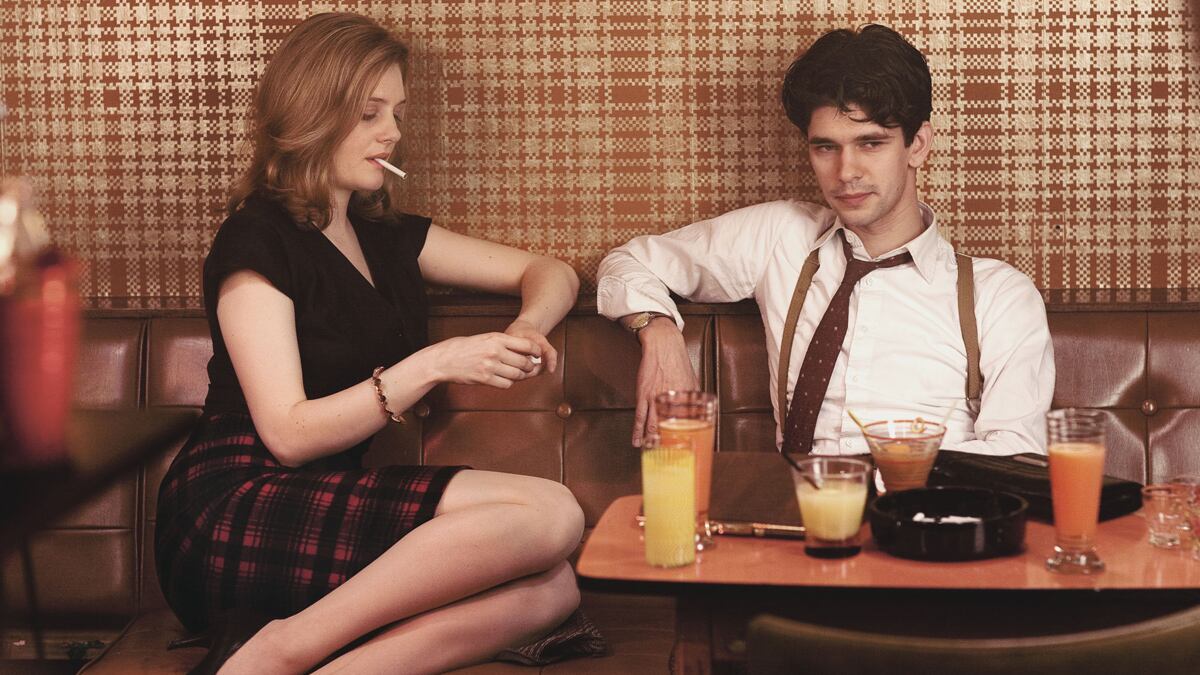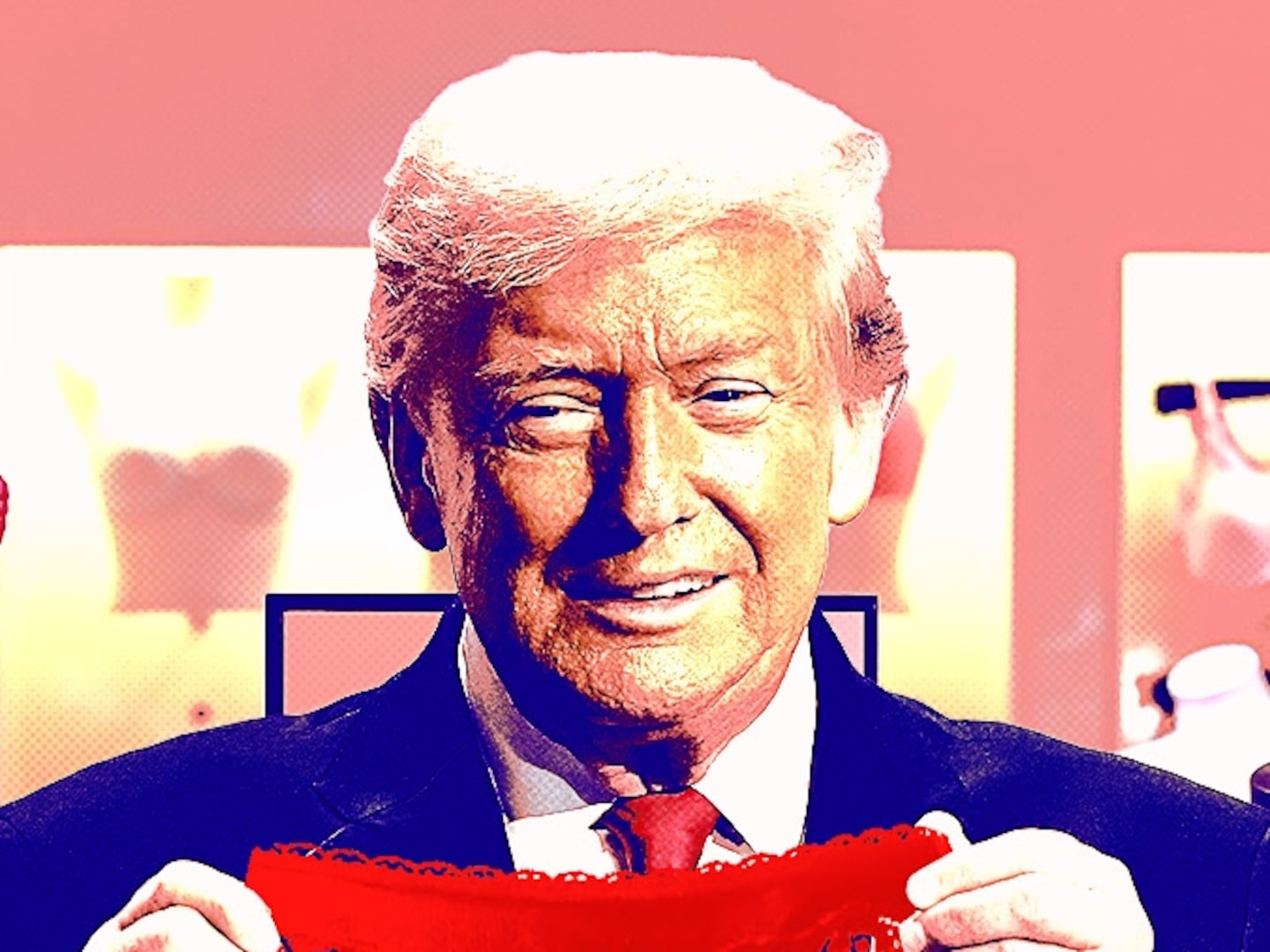The British drama The Hour, launching on Wednesday, Aug. 17, on BBC America, arrives at an inauspicious time for British journalists currently mired in a phone-hacking scandal and charges of police bribery that has closed newspapers and brought media moguls in front of Parliament. Those involved with such illicit and illegal wiretapping bear little resemblance to the journalist-heroes of The Hour, set in and around a BBC newsroom in 1956, where the truth was the most important principle.
Set against the backdrop of the Suez Canal Crisis (PDF), and within the corridors of Westminster and the BBC’s Lime Grove Studios, The Hour concentrates on three young journos—misfit Freddie Lyon (Brideshead Revisited’s Ben Whishaw), ambitious Bel Rowley (Atonement’s Romola Garai), and charming Hector Madden (The Wire’s Dominic West)—as they pursue the truth and one another while the country and the world changes around them. There are unexpected parallels between what’s going on in the newsroom of The Hour, the show’s fictional newsmagazine program, and the world today: government cover-ups, trouble in the Middle East, and a pervasive feeling of paranoia.
“[In The Hour,] Freddie says, ‘History repeats itself first as tragedy, second as farce,’” said creator Abi Morgan, a playwright and screenwriter best known for Sex Traffic and Brick Lane. “Those big historical moments, those news stories do repeat themselves, because they are based on inherent human failure.”
When it launched in July in England, the show drew immediate comparisons to AMC’s critical darling Mad Men. But don’t make the comparison within earshot of Morgan, who says she loves Mad Men but argues that her show is altogether dissimilar.
“It’s a very British show,” said Morgan, sitting poolside at the Beverly Hilton Hotel last month. “It’s looking at a very different kind of social climate. There are obviously comparisons because there are sexual politics, there are [other] politics … but it’s also primarily a political thriller … There are two murders in the first episode.”

Unless Mad Men’s Don Draper has run afoul of spies, these are different beasts. While the two shows take place in bygone decades—The Hour in post-war England in 1956 and Mad Men in the 1960s—the two aren’t at all similar beyond the prevalence of booze and cigarettes and the hourglass silhouettes of the show’s women. The Hour further conflates the political and the personal, allowing individual stories to be told against the backdrop of sweeping change.
According to Morgan, The Hour owes more to such films as Broadcast News and All the President’s Men than it does to AMC’s award winner. Its focus is very much on the newsroom politics and love triangle in which the show’s central characters find themselves, while the film noir–style espionage plot looms on the periphery, darting into view at unexpected moments.
The Suez Canal Crisis provides a strong through line for the plot, and in real life became a pivotal moment when the BBC threw off the shackles of Parliament’s 14-day rule (the broadcast media couldn’t discuss anything being debated in Parliament for 14 days) and stated that they wanted to tell an impartial story in real time.
“It’s the moment where we’re waving goodbye to the empire and recognizing that the establishment is in decline and the country is being run by an ailing prime minister,” said Morgan. “When I started to look at it more broadly, it was exciting that this was not only a literal revolution going on in Egypt, but there was this incredible revolution going on culturally … There was a sense that the old order was shifting [and] the newsroom became this great melting pot to really explore the historic and social events of the time.”
And at the time, journalists didn’t represent the “endemic sense of corruption” that they do in Britain today. “Now, we have a great sense of entitlement amongst journalists,” Morgan said. “Journalism and the news has become not only a means to debate but also to judge and deconstruct celebrity, the news story, and the emotional lives of political people … I still believe that good journalism does exist.”
In that sense, Whishaw’s Freddie represents a paragon of the form, engaging in a desperate quest for the truth, even as he puts his own life at risk while the bodies pile up around him. (“Freddie is the journeyman for the piece,” said Morgan, “and what you discover is, as the drama unfolds, just how personal this thriller is to Freddie himself.”) There’s genuine B-movie suspense sizzling within this plot: spies exchange coded messages within crossword puzzles, and no one is who he appears to be. But The Hour isn’t all secret rendezvous or attempts at code breaking: it’s also about change and transformation, identity and self-discovery.
“It’s about a show trying to find an identity,” Morgan said. “It’s about a country trying to find an identity. It’s about a country that has seen itself as an empire and now is dealing with mass waves of immigration and the loss of the colonies. It’s also about a series of characters who are trying to reconfigure themselves professionally and personally. It’s about a female character who is trying to make her way in a man’s world, and it’s about a working-class man who is trying to fit into what was traditionally an established aristocratic corporation.”
The BBC has yet to decide whether to commission a second season of The Hour, but Morgan already has ideas for where she’d like to take the show. “I’d love to come back in maybe six to eight months’ time and take another great big news story,” she said. “I’d love to see how Bel, Freddie, and Hector evolve. I’d like to look at the wider pressures on the BBC at that time [and] I’m very interested in Sputnik and the space race as a backdrop ... I like the idea of these two parallel nuclear bombs ticking. One is a cultural bomb in terms of London dealing with mass immigration and social change, but then on a wider level it was about Britain joining the space race and ultimately the arms race.”
In the meantime, Morgan’s slate is full: Shame, a film about sex addiction that she co-wrote with Steve McQueen, will be released in the U.K. in January and premiere at the Venice Film Festival in September; an adaptation of Sebastian Faulks’ World War I romance novel Birdsong, which is on tap for next year; and this December will see the release of The Iron Lady, the Margaret Thatcher biopic that stars Meryl Streep as the former prime minister.
Clips from The Iron Lady, which made the rounds earlier this summer, have already set many tongues wagging, with outcries of liberal bias.
According to The Telegraph, Thatcher’s children, Sir Mark and Carol, were reportedly “appalled” by what they learned about the film, and a source close to Baroness Thatcher’s offspring claimed they denounced The Iron Lady as “a left-wing fantasy.”
“I hope it’s a film about power and the loss of power,” Morgan said. “To be honest, if I was going to have any kind of fantasy, be it left-wing or otherwise, it wouldn’t involve Margaret Thatcher.”






